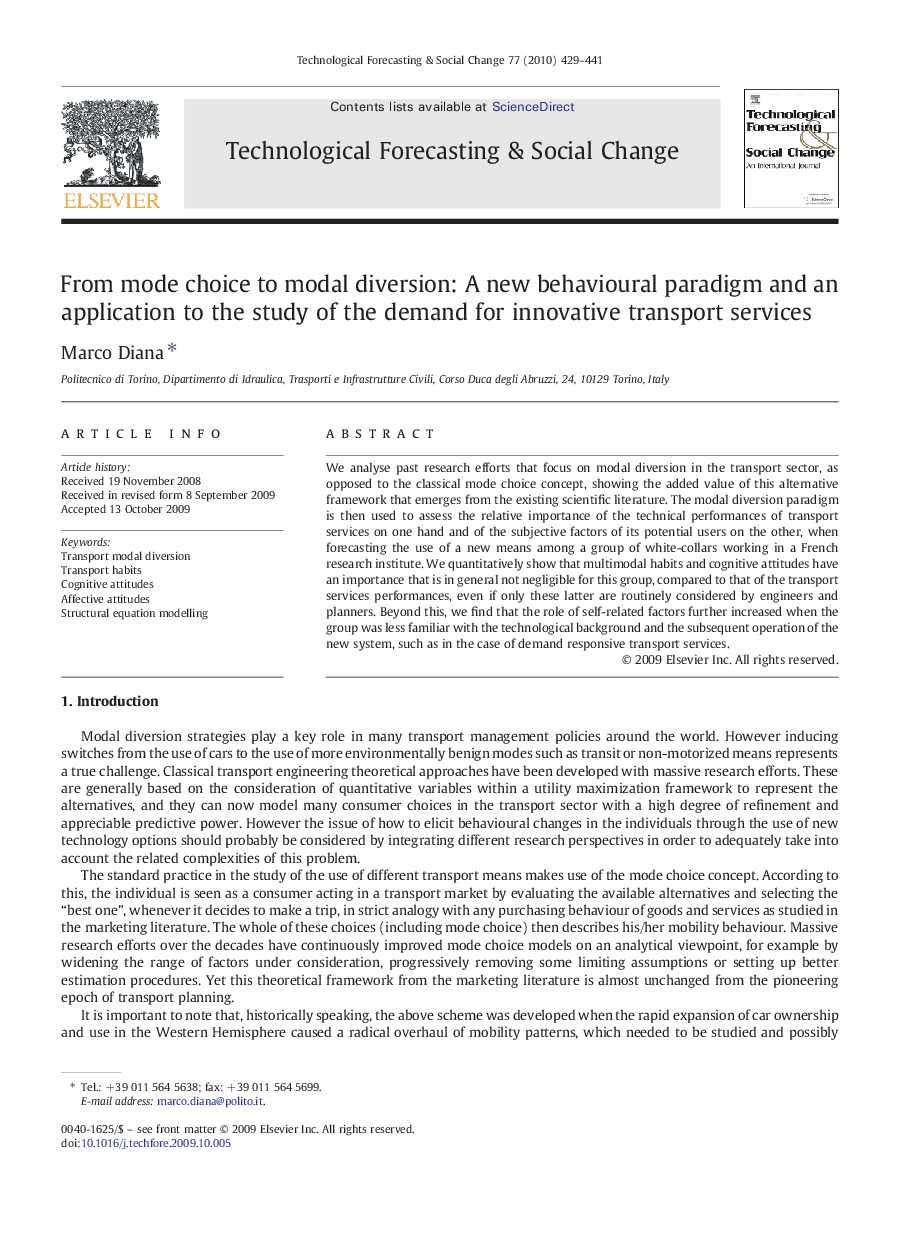| Article ID | Journal | Published Year | Pages | File Type |
|---|---|---|---|---|
| 896950 | Technological Forecasting and Social Change | 2010 | 13 Pages |
We analyse past research efforts that focus on modal diversion in the transport sector, as opposed to the classical mode choice concept, showing the added value of this alternative framework that emerges from the existing scientific literature. The modal diversion paradigm is then used to assess the relative importance of the technical performances of transport services on one hand and of the subjective factors of its potential users on the other, when forecasting the use of a new means among a group of white-collars working in a French research institute. We quantitatively show that multimodal habits and cognitive attitudes have an importance that is in general not negligible for this group, compared to that of the transport services performances, even if only these latter are routinely considered by engineers and planners. Beyond this, we find that the role of self-related factors further increased when the group was less familiar with the technological background and the subsequent operation of the new system, such as in the case of demand responsive transport services.
